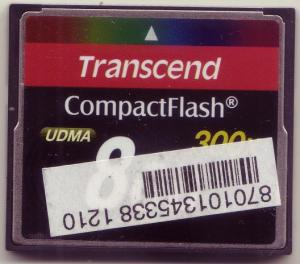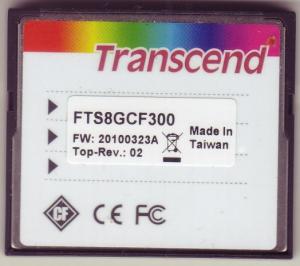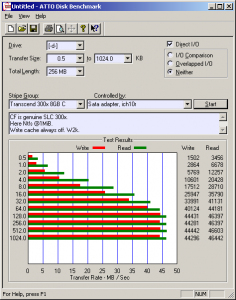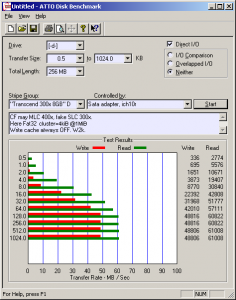Content Type
Profiles
Forums
Events
Everything posted by pointertovoid
-

Windows 2003 performance and security?
pointertovoid replied to OldSchool38's topic in Windows 2000/2003/NT4
I've tried (too) shortly 2k3 and abandoned it as a desktop OS, because: - It shuts down very slowly, and only after many confirmations. Maybe I made something wrong. - I've seen no single advantage as a desktop over W2k nor even Xp. Not faster. Ram>4GB on 32b OS, oh good. - It takes quite some tuning before one can use it as a desktop. - Updates lists are plentiful and debunked for W2k and Xp, and nice experts are here for both - less so for 2k3. Just one example of a bad gag: you can't have a dual-boot W2k+2k3. It works for some time with W2k-Xp, but not at all with 2k3. Or I missed something (again, I didn't investigate for days). That's a hint to differences that are not superficial. Then I'm wary about drivers refusing to install just because the authors didn't want to test them. Forcing them by hand is a lottery. If they crash after a week, and do that once a day, you won't find the cause among hundreds of possible ones, but you'll be upset. As a sidenote, W2k and Xp are different. Xp's dll offer many more entry points than W2k (you know: "entry point DoFancyThing has not been found in Thingy.dll") - that's why some heroes have added entry points to W2k's dll. An other example is the USB stack, which was completely rewritten for Xp. Though, this is no prejudice about how near Xp and 2k3 are. -
Now the HeartBleed bug has been published, which permits assaillants to get protected information from servers running SSL communications (you know, the secured https web pages), including the certified keys used by the secure website to sign its page. That is, an assaillant has the original information needed to make a nearly-perfect faked https web page (did this happen in the recent days to the Yahoo mail? Login worked abnormally here) to steal all the protected information from the page user. This includes the website's keys that are permanent, not just the "random" session keys. As a consequences, secured websites are requested to create new permanent secret keys, get a new certification, and revoke the former keys that are probably leaked. BUT, and that's my question: As a visitor to such websites, do I need to revoke some keys? To my understanding, my computer only knows the certification companies, not the certified websites, so I don't have to react. By the way, I'm not completely sure that the Heartbleed was a true bug instead of piracy. Too simple, lasted for too long - and the Heartbleed site http://heartbleed.com/ tells "crown jewels", which is the English code by secret services to designate especially important secrets. Before the Heartbleed bug, already the random session keys had been too little random in a bug that stank ilke a governmental attack on privacy. Leaked NSA documents also mention they defeated some SSL implementations through inside accomplices. Many thanks to the people who revealed the bugs.
-

Fake Transcend Compact Flash Card
pointertovoid replied to pointertovoid's topic in Hard Drive and Removable Media
I've bought four Transcend CF 266x 4GB, four 300x 4GB, one 266x 8GB, three 300x 8GB through eBay, and all were authentic and SLC. Only the last one is an MLC, made by Transcend for on single customer, allegedly Fujitsu. You can see the aspect is the same: -

Fake Transcend Compact Flash Card
pointertovoid replied to pointertovoid's topic in Hard Drive and Removable Media
I've received an answer from Transcend, based on the serial number printed on the card. They did manufacture this FTS8GCF300 (notice the F) according to the desire of one single customer and not for the general market. Its performances differ from the TS8GCF300 (without F, that's the good SLC we know). Alas, Transcend has kept exactly the appearance of the TS8GCF300 (or did someone copy it afterwards?). Only a sticker tells FTS8GCF300 and the firmware 20100323A. That's not very far from making their own fakes. So if you buy a Transcend 300x 8GB, chances exist that you get a CF with MLC chips inside, which are less reliable and 5 times slower on small files. I couldn't make the difference from the front side picture. On a reader, even USB 2.0, you see the speed contrast; on an adapter, you can read the identity (F or not), and the microcode version. How to know before buying? Uh, no idea. Most sellers won't tell the microcode version nor the card identity. My seller knew exactly what he was selling and the difference with the legitimate card, as inferred from his answers, so he wouldn't have helped before the sale. -
Very nice! At that time http://www.msfn.org/board/topic/151798-does-fat32-align-its-clusters/ I had to try many alignments by hand, guessing the proper correction by Atto's curve aspect. An automatic tool for it is readlly welcome. Well done!
-
Despite using a computer, I've not become paranoid. I'll check more deeply your links. Thanks!
-
Defrag, junk: not on my computer. Thank you!
-
Hi there Xp users! I've had W95, 98se, Me, 2k - and since two years, XP, just because one necessary piece of hardware demands it. I didn't understand before why people complained that "Windows" gets slower over time, because I had not seen that with W95, W2k, not even 98se and Me. Always thought it resulted from bloating applications not kept under control. Though, my own Xp gets slow. No hardware excuse: Core 2 duo E8600 "Wolfdale" @4GHz, 4GB, P45 ich10r, X25-E - more than enough. I also have 2k on this machine and it's as snappy as on its first day, impressive; only Xp, which was quick when fresh, gets slooooow. Is that a known behaviour by Xp? Or do I need to look for other explanations? Thanks!
-
Hello dear friends! Windows (and possibly some browsers, independently) knows signatures by certification companies. These companies (Verisign is a known example) authenticate web pages (https) and their content as legitimate, the browser checks the signature against the trusted list, and tells the user whether the page is certified or not. The worry is that some governmental agencies have certification keys, and these agencies or delegations have used their key to sign web pages that are fakes. These pages imitate legitimate ones, the browser tells that the signature is an acceptable one, the user gives a password, and the governmental agency knows the password for its nefarious misuses. This mechanism was suspected for long, and recently Google has denounced it accurately: one of its pages (GMail?) was faked, Google revoked the agency's key in their Chrome. Of course and as you guess, I want to revoke the signatures by this governmental agency on my computers. A mechanism exists, as Microsoft updates, to add trusted signatures on a computer. I suppose mechanisms exist to revoke some. How can I do this? Many thanks!
-

Poll and Discuss Defragmentation Software
pointertovoid replied to DigeratiPrime's topic in Software Hangout
Apparently you've missed the relationship between fragmentation and prefetch, beginning with XP. XP's prefetch observes and keeps track of what files, and even file pieces, are loaded when XP and the applications load. This information is used by XP's defrag to optimize the position of the files on the disk. That is, Defrag put contiguously files that are loaded at the same time, which competitors don't do. I even believe to have read - but am unsure - that XP's defrag splits files if the prefetch senses that some files are not loaded in one piece. As consequences: - In a multiboot installation, one should not defragment files used by one OS using the software on the other OS - Different defragmenters have different opinions about what is a degragmented disk - easy to check. - Competitors appear to operate more quickly, but the result is slower - You can make the difference by ear, on a mechanical disk, especially during the OS boot. XP's defrag does a better job than the competitors. -
Go NTFS if you can, which nearly means, if no Linux nor camera must use the card. If a file write goes wrong - not uncommon with removeable media - you lose one file with NTFS, but many or all with FAT32. Also, NTFS aligns naturally the clusters on Flash lines and pages if starting the volume at 1MiB boundaries, while Fat32 alignment is difficult.
-
Hello you all... It was well known - but worth mentioning - that nearly all Sandisk Flash Cards sold on eBay are fake. Up to now, I had gotten only legitimate Transcend Compact Flash, but recently I received my first fake. I bought an SLC one, the 300x 8GB, because it's much faster on small files, hence better for user data when not photos, better also if installing an OS or its paging file on it, or the temporary files from an Internet navigator, and so on. SLC is also more reliable; never lost data on an SLC CF card, while I know many destroyed MLC USB keys, with the data lost. The received part looks very well: same shape precisely, well printed cover... but the speed differs! It doesn't offer the SLC's snappy access to small files, especially to write. More surprisingly, this part is faster on big files... Here are measures of a legitimate 300x and the fake, by Atto, through an almost sufficient noname Sata-to-CF adapter, on an ICH10R. My best guess is that the hardware is an MLC 400x from Transcend (or equivalent), with fake covers from an SLC 300x, because the 300x sells for much more money. The identity read by Crystal Disk Info is also unexpected, as FTS8GCF300, unknown on the Internet. The added "F" must stand for "Fake"... Transcend has already confirmed that they have produced no MLC variant of the 300x. (Not even the 16GB? I'm less than sure). An other surprise: this CF of unknown identity gives its best performance with a Fat32 starting at 1MiB, which is the default formatting by Vista+, but doesn't align the clusters on the Flash lines and pages - probably a trick in beween by the card's microcode of 2010, which doesn't exist on the 300x CF. Related topic: http://www.msfn.org/board/topic/151798-does-fat32-align-its-clusters/
-
Hi old friends, nice to see you again! The deceleration in a hard shock is nearly impossible to evaluate, because it relies completely on how hard the shock is (I made crash-tests in my last job). So 350G versus 300G mean nothing. And for the destructive effect, the speed variation can be as important as the deceleration. But 300G is a soft shock. 2,000G would be a more usual one, like metal falling from 1m height on concrete. In other words: disk drives shall not fall on the ground.
-
Check if BlackWingCat has made some port. W2k runs on ich10r thanks to him.
-

Modifying/Replacing Shell32.DLL on NT 4.0
pointertovoid replied to ironman14's topic in Windows 2000/2003/NT4
Replacing the individual DLL won't do. First, they need themselves other DLL, and second, you will hit some Windows protections. Upgrading the entry points needs to reprogram or port the DLL. All of them. This is a huge task. If nobody has done it for Nt4, I suggest not to start: it's not worth it for you alone. Do you have excellent reasons to use Nt4? For instance its DirectX is limited to something like v4, so expect all games, video and sound players like VLC to fail even if the DLL were upgraded. Its disk size is also limited, and so on, and presently you'll find very few users to help you. The Microsoft updates have disappeared. No more antivirus I believe. No decent navigator. -
A used MS Office 97 costs very few bucks on eCreek. It will read, write, edit your rtf and doc files without conversion. Even the 2k and 2k3 editions are cheap by now. The "Pro" version brings Word, Excel, Access and Powerpoint. The 97 starts very quickly on a machine that runs W2k properly.
-
Intel's X32E and X64E work perfectly with W2k. I use them for two years, no difference at all over time. They are SLC hence little sensitive to filling +enduring +responsive with Q=1. Their 10-way internal Raid makes them insensitive to alignment (I tested), which is an advantage with some mobos (or with W2k?) which don't boot if the volume starts at 1MiB instead of sector 63. They are old and small (32GB and 64GB) but available on eBay.com. Buy them used with confidence, since the SLC don't wear out. The Kingston SSD now is an exact equivalent to Intel - same hardware and microcode, probably the same assembly line, with a different label. An aligned Raid-0 of two X64E improves only the benchmarks (four not even the benchmarksover two), not the use nor the realistic tests. It's really the one SSD that works at claimed speed without worries nor special precaution, including with W2k and older.
-

Flash 9 not working on NT 4.0? (consolidated thread)
pointertovoid replied to ironman14's topic in Windows 2000/2003/NT4
The original Flash player is a #&@!!! Find a browser that brings its own software for Flash files. Much more importantly: a browser that brings a Flash BLOCKER, so that such files play only when YOU really want. -

Acrobat Reader 11 & Windows 2000
pointertovoid replied to ironman14's topic in Windows 2000/2003/NT4
Throw away Acrobat and more generally everything from Adobe. Foxit is 60dB better. Did you notice that Acrobat launches together with Windows, so that Acrobat seems quick to start and Windows slow? -
You could check the prices at eCreek, knowing that: - "Buy it now", often by professionals, tend to be expensive and take months to sell; - Auctions, often by non-pro, are cheaper, so just follow a few ones to the end to make an idea; - Separate parts earn you much more money than the complete computer; - But making all sales simultaneously is better: buyers can save on grouped shipping and check all your sales.
-
Thank you both! I've installed Speccy and Passmark, which are both nice pieces of software. They display information obtained from the Spd on the modules, in a useful and informative way. More suggestions are welcome, to measure the latency and throughput by benchmarks.
-
Hello nice people! Wanting these days to check a new Ram, I realize my software dates back to the PIII... So I look for more recent ones, that understand what a dual channel and a double data rate are. Is there a small nice software, a bit like Cpu-Z, that reliably tells much about the Ram? What I'd like: - Read the Spd, tell what speed+latency+voltage combinations the manufacturer foresees (Cpu-Z does) - Tell what speed+latency+voltage is currently used (Cpu-Z does) - If possible from the same software, measure the latency, read speed, write speed (Cpu-Z does not) Preferably running with Windows, and even better W2k. I have Aida32/Everest/Aida64 and doubt its Cas Ras. Running with Dos as Ctcm7 did would be acceptable. It doesn't need to test the reliability of the Ram, since I prefer to do that outside any OS (Memtest86+). Thank you!
-
Sp4 and Rollup1 v2 can be considered the minimum to do on a W2k. It is better to slipstream them into the installation Cd, because - The install is cleaner from the beginning - Less worries if reparing the install - Faster - You can have EnableBigLba right from the beginning, hence access the whole disk >128GiB Microsoft has officially made the install Cd and the patches to be slipstreamed. HfSlip is an other option (which eases the inclusion of EnableBigLba), nLight is an other, and more non-Microsoft methods exist. No COA required: this can happen with Oem. There are also means to provide a serial with a file. Etc. The best Flash player is none, as far as you can. Some browsers come with their own player, less bad. Better: Firefox contains a flash blocker, very useful. And for instance Foxit can replace Adobe's Acrobat Reader, thank you. Browsers: many work, including Firefox (almost the latest is officially for W2k), Opera. I had big (big) worries with a Chrome intent on W2k, using a non-official patch that botched the system, so avoid it until you know W2k very well and are willing to experiment. Safari is not for W2k. Security: Avast and Comodo are officially for W2k and up to date, plus few more. Security: install your W2k on an Ntfs volume, define and use a session which has not administrator rights but "power user". This is much more important than updates and even antivirus. Do not begin to tinker software portability with a hex edit: - It's extremely time-consuming. - Internet hint to compatibility is most often false. Msfn is nearly the sole reliable info source for W2k. Have a look at the pinned thread "latest version...for W2k" - Xp and W2k are NOT the same. Xp has many more dll entry points. Any Xp driver, soft... forced on W2k will likely fail. - It may destabilize W2k; and then you won't remember the cause.
-
Audio cards exist that you plug in a USB port, for loudspeakers and microphone. No additional power needed, and because the chip is a bit old, no driver to add to W2k - not even KB888111 which is a censor. I bought some from China through eCreek for very few bucks. One single drawback: they protrude at the USB port, making them vulnerable, so better buy several - but I destroyed none. The same seller had for me adapters from and to Usb - parallel, Usb - Pata40 - Pata44 - Sata, Sata - CF, Sata - Pata... nice to have at hand. I wouldn't be surprised if loudspeakers exist with a Usb input.
-
Both DG834 bought from UK sellers work in France now. Thanks for your help!





